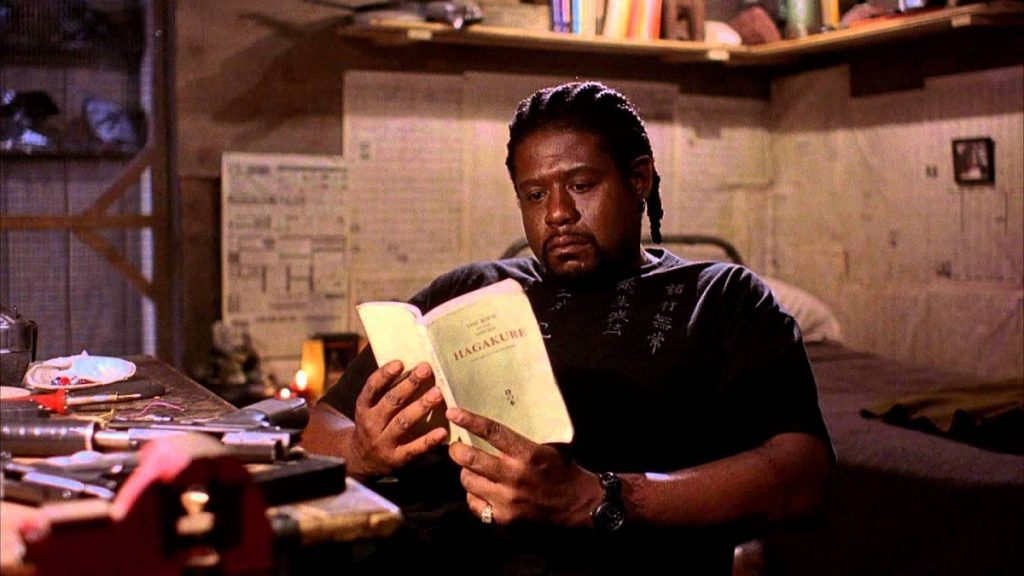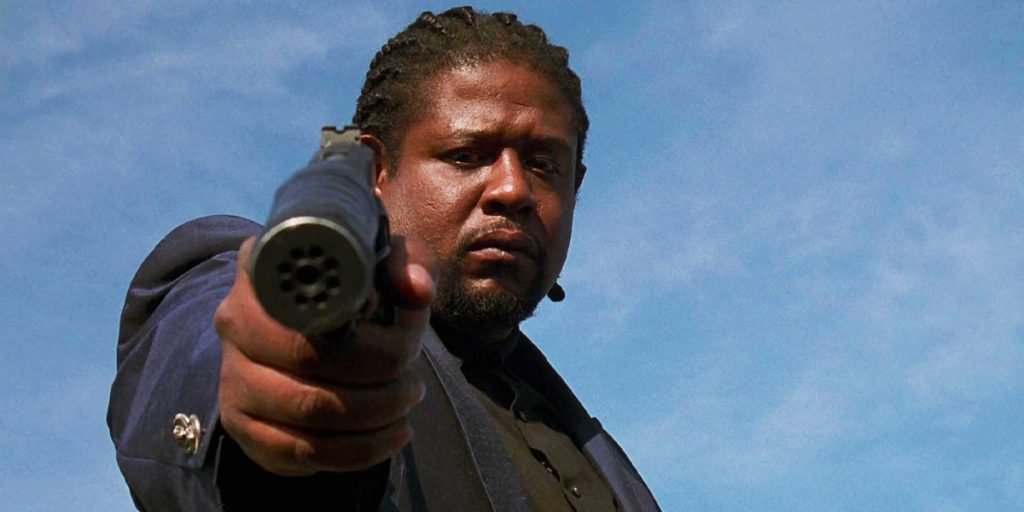Jim Jarmusch ’s criminally underseen Ghost Dog: The Way of the Samurai is a poetic and nostalgic look at a bygone era.
Wielding a pistol and cruising down the shady streets of a non-descript industrial city while blaring RZA, Ghost Dog is not someone you’d think of when you think “samurai.” Yet, as an individual that lives by the teachings of the bushido code and religiously reads Hagakure, the spiritual guide for a warrior, Ghost Dog becomes a modern retelling of the archetypal samurai. As weird as this may sound, it’s an intentional choice from American filmmaker Jim Jarmusch, who, when being interviewed about the film, referred to it as synthesis, suggesting “America is about the synthesis of a lot of different cultures, and beauty arises out of that synthesis.” This explains the other odd addition to the story: the mob, which is mainly composed of aging and out of shape old men. Jarmusch’s Ghost Dog: Way of the Samurai is a film that presents many contradictory motifs and ideas, yet it works as one coherent narrative, giving it a distinct otherworldly atmosphere.
Forest Whitaker plays the titular Ghost Dog, a hitman who’s loyal to his retainer, Louie (John Tormey), a member in the mob who saved his life years earlier. After leaving a witness behind after a successful hit, Louie’s bosses order Ghost Dog to be eliminated, sending a series of bumbling, out of shape, and racist mobsters to kill the evasive, stoic, and resourceful samurai.
This is the central narrative, but it’s the small moments of Ghost Dog: The Way of the Samurai that make it stand out. Ghost Dog twirls his pistol like a sword before holstering it, a bird lands on the barrel of Ghost Dog’s sniper barrel, two people understand one another perfectly even though they speak completely different languages, even the somewhat out of place RZA cameo fits impeccably well in the world. These minute details feel indescribably common and natural in the world of Ghost Dog: The Way of the Samurai. Individually, all these events might seem strange, and surely in any other film they would lead to an inconsistent tone, but because of Jarmusch’s synthesis, all these ideas fit. Quite simply, Ghost Dog: The Way of the Samurai is not a gangster samurai hip hop absurd dramedy, but rather simply a Jarmusch film, impossible to separate into individual categories, no matter how much its specific iconography might suggest.

In addition to providing a holistic and tightly layered multi-genre film, Jarmusch’s Ghost Dog: The Way of the Samurai also works to stress the importance of art. Serving as an amalgamation of various mediums and motifs, Jarmusch’s film first proves that original stories can still be crafted out of pre-existing genres and ideas. Some scenes in the film are directly inspired from films like Branded to Kill, yet Jarmusch effortlessly combines so many influences with his own idiosyncratic voice that the film remains entirely distinctive. Furthermore, the narrative itself demonstrates the importance of passing art onto the younger generation. Ghost Dog lends books, both “Rashomon”and “Hagakure,” to a young girl, with the hopes of instilling the same morals and sensibilities into her that he’s gained from reading them. One could surmise that, in the same sense, Jarmusch wishes his film can inspire future generations, much like the various classics that have inspired him.
I know this film may be too “out there” for some people, or too “subdued” for others, but to me, its mixing of so many ideas and genres makes Ghost Dog: The Way of the Samurai such a brilliantly refreshing and exciting film. Its tone is elusive, existing somewhere between nostalgic, melancholic, resigned, and optimistic. Above all else, though, it’s truly unlike any film you’ve seen before, operating as a functional pastiche of so many great works of art.

 loudandclearreviews.com
loudandclearreviews.comGhost Dog: The Way of the Samurai was released theatrically on March 24, 2000 and is now available to watch on digital and on demand.

